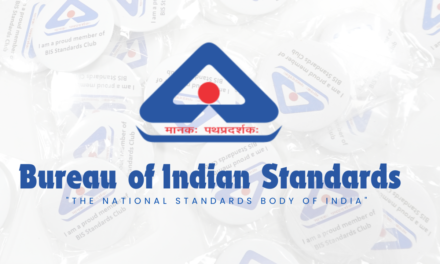What are the emerging trends in the role of textile agents with the rise of e-commerce and digital marketplaces?
The rise of e-commerce and digital marketplaces has significantly influenced the role of textile agents in the global textile and apparel industry. As businesses increasingly move online, textile agents are adapting to these changes by leveraging digital tools, data analytics, and online platforms to streamline their services. Here are some emerging trends in the role of textile agents in the context of e-commerce and digital marketplaces:
1. Digital Transformation and E-Commerce Integration:
- Online Product Sourcing: Textile agents are increasingly using digital platforms to source materials, fabrics, and finished goods for their clients. E-commerce platforms allow agents to easily connect with a broader range of suppliers and manufacturers globally, enabling them to access more competitive pricing and specialized products.
- E-Commerce Platform Collaboration: Agents are collaborating with e-commerce platforms like Amazon, Alibaba, Etsy, and eBay to help small and medium-sized businesses (SMBs) market their textile products. They assist businesses in managing their product listings, ensuring that the products meet the requirements of online retailers, and helping businesses expand into international markets.
2. Use of Digital Tools for Product Design and Customization:
- Virtual Prototyping: Textile agents are utilizing virtual prototyping tools and 3D design software to help their clients visualize and test their designs before production. This allows e-commerce businesses to offer customized or made-to-order products, which is particularly beneficial for niches in the fashion and home decor markets.
- CAD and Digital Sampling: Computer-Aided Design (CAD) software and digital sampling tools enable textile agents to assist businesses in creating digital versions of fabric designs and product prototypes. This reduces the cost and time associated with traditional sampling methods, which is critical for businesses selling products online, where quick turnaround times are essential.
3. Supply Chain Digitization and Real-Time Tracking:
- Supply Chain Visibility: Textile agents are implementing digital solutions such as real-time tracking, blockchain, and IoT (Internet of Things) to enhance transparency in the supply chain. Through these digital tools, agents can provide real-time updates to businesses about the status of their orders, shipments, and inventory levels, ensuring timely deliveries.
- Optimized Inventory Management: With the rise of e-commerce, textile agents are helping clients adopt advanced inventory management systems. These systems use data analytics and AI to predict demand, optimize stock levels, and automate reordering processes. This ensures that businesses can meet the fluctuating demands of online consumers without overstocking or running out of inventory.
4. Enhanced Communication and Collaboration:
- Global Virtual Networks: Textile agents are now able to use cloud-based platforms and video conferencing tools to communicate and collaborate more efficiently with suppliers, manufacturers, and clients worldwide. These tools facilitate virtual meetings, design reviews, and order discussions, enabling smoother communication across different time zones.
- Online B2B Marketplaces: E-commerce has given rise to B2B (Business-to-Business) marketplaces where textile agents can help their clients connect with suppliers and manufacturers. Platforms like TradeIndia, Made-in-China, and IndiaMart allow businesses to explore global trade opportunities, expand supplier networks, and source fabrics and finished goods without needing to travel.
5. Emphasis on Sustainability and Ethical Sourcing:
- Sustainable Product Sourcing: As sustainability becomes a priority for consumers shopping online, textile agents are increasingly sourcing eco-friendly materials such as organic cotton, recycled polyester, and sustainable wool. They are also working to connect businesses with certified manufacturers that meet environmental and ethical standards (e.g., GOTS, Fair Trade certifications).
- Sustainability Reporting: Agents are using digital tools to track and report on sustainability metrics such as carbon footprint, waste reduction, and fair labor practices. This allows online businesses to meet the growing consumer demand for ethical and eco-friendly products and differentiate themselves in a competitive online market.
6. Artificial Intelligence (AI) and Data Analytics for Market Insights:
- Market Trend Analysis: With the help of AI and data analytics tools, textile agents are able to analyze consumer behavior and market trends to help businesses make informed decisions. These insights enable SMBs to understand customer preferences, seasonal trends, and market shifts, allowing them to adjust their product offerings and marketing strategies.
- Predictive Analytics: AI-powered systems are helping textile agents anticipate demand patterns for textiles and apparel. By analyzing historical sales data and market trends, agents can recommend optimal production and sourcing strategies, which is crucial for managing e-commerce businesses that need to adjust quickly to changes in consumer demand.
7. Logistics and Global Shipping Solutions:
- Efficient Shipping and Delivery: With the increasing volume of online orders, textile agents are partnering with global logistics providers to offer end-to-end shipping solutions. Agents can help e-commerce businesses navigate the complexities of international shipping, customs clearance, and import/export regulations, ensuring faster and more cost-effective deliveries.
- Last-Mile Delivery: For e-commerce businesses, efficient last-mile delivery is a critical component. Textile agents are helping their clients manage local warehousing, fulfillment services, and distributed inventory to ensure faster delivery times and enhanced customer satisfaction.
8. Digital Marketing and Brand Building:
- E-Commerce Marketing Strategies: Textile agents assist e-commerce businesses in creating effective digital marketing strategies, including SEO (Search Engine Optimization), social media marketing, and content creation. This helps businesses build their brand presence and increase visibility on popular online platforms such as Amazon, Instagram, and Etsy.
- Influencer and Affiliate Marketing: With the rise of influencer marketing, textile agents are helping brands leverage social media influencers and affiliate marketing programs to increase brand awareness and drive online sales. These marketing strategies are particularly effective in the fashion and lifestyle sectors.
9. Customization and On-Demand Production:
- Made-to-Order and Personalization: The demand for customized and personalized products in e-commerce is increasing. Textile agents are helping businesses set up on-demand production models, where products such as customized apparel, personalized home textiles, or one-of-a-kind accessories are made according to customer specifications. This business model reduces the need for large-scale inventory and allows businesses to cater to niche markets.
- Direct-to-Consumer (D2C) Models: Textile agents are also helping businesses implement direct-to-consumer (D2C) sales models, where companies sell their products directly through their own online stores, bypassing traditional retailers. Agents assist with everything from website setup to logistics and digital marketing.
10. Blockchain for Transparency and Trust:
- Blockchain Technology: Some textile agents are exploring blockchain technology to ensure product traceability and supply chain transparency. This technology allows consumers to track the entire journey of a product—from raw material sourcing to production and delivery—providing trust and credibility in e-commerce transactions.
- Smart Contracts: Blockchain’s use of smart contracts is also helping textile agents facilitate secure and automated agreements between suppliers, manufacturers, and buyers, reducing the risk of disputes and delays.
The rise of e-commerce and digital marketplaces has reshaped the role of textile agents by introducing new technologies and business models that enable greater efficiency, customization, and global reach. Agents are increasingly using digital tools, AI, and data analytics to help businesses navigate the complexities of the global online market. They are also focusing on sustainability, logistics optimization, and brand building to support businesses in their e-commerce journey. As the digital landscape continues to evolve, textile agents will continue to play a critical role in helping businesses adapt and thrive in an increasingly competitive and dynamic market environment.







